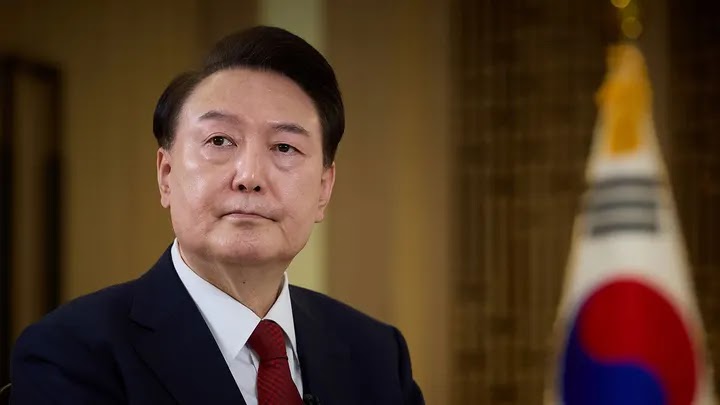South Korean leader facing mounting calls to resign or be impeached over martial law.
South Korean President Yoon Suk Yeol on Wednesday was facing pressure from legislators and the public to step down or be impeached after he ended a martial law, which led to troops encircling parliament, that he called for just hours earlier. Yoon's senior advisers and secretaries offered to collectively resign. The president's Cabinet members, including Defense Minister Kim Yong Hyun, were also facing calls to resign. All members of the South Korean State Council reportedly expressed their intention to resign. On Tuesday night, Yoon abruptly imposed martial law and pledged to eliminate "anti-state" forces after he struggled to move his agenda through the opposition-dominated parliament.
The martial law, however, was only in effect for about six hours since the National Assembly voted to overrule the president's decision. The martial law was formally lifted during a cabinet meeting at around 4:30 a.m. Lawmakers submitted a motion to impeach the president over his martial law declaration. The liberal opposition Democratic Party, which holds a majority in the parliament, threatened earlier in the day that its lawmakers would move to impeach the president if he did not resign immediately. "President Yoon Suk Yeol’s martial law declaration was a clear violation of the constitution. It didn’t abide by any requirements to declare it," the Democratic Party said in a statement. "His martial law declaration was originally invalid and a grave violation of the constitution. It was a grave act of rebellion and provides perfect grounds for his impeachment."
Impeaching the president would require the approval of two-thirds of the parliament's 300 members. The Democratic Party and other small opposition parties together make up 192 seats. But 18 lawmakers from Yoon’s ruling People Power Party cast ballots opposing the president's decision when the parliament rejected Yoon’s martial law declaration in a 190-0 vote. The leader of the People Power Party, Han Dong-hun, criticized Yoon’s martial law declaration as "unconstitutional."
If Yoon is impeached, he will not have his constitutional powers until the Constitutional Court can rule on his fate. Prime Minister Han Duck-soo, the second in command in the South Korean government, would take over his presidential responsibilities. Amid calls for Yoon’s Cabinet to resign, Han issued a public message asking for patience and calling for Cabinet members to "fulfill your duties even after this moment." Yoon’s martial law declaration was the first of its kind in more than 40 years. Scenes of military intervention had not been seen since South Korea achieved genuine democracy in the late 1980s.









0 Comments